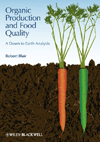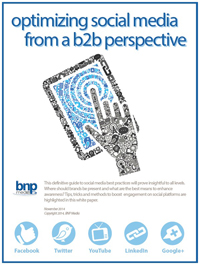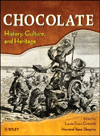A Baker’s Dozen: How Do Customers Perceive This Today?

A baker’s dozen is a familiar expression that has been around for generations and even centuries. Why has the baker’s dozen continued on as a perpetual phrase? For ideas, products, even industries to perpetuate, they must connect to a sense of truth or emotional certainty. There are two values the baker’s dozen phrase aligns with, no matter what the conception. Those two values are integrity and generosity.
But does baker’s dozen mean value? Are bakers just being generous? Is it because they are guilty for trying to cheat me? Have they been cheating me? Are bakers not giving me what I am expecting or paying for? The phrase has morphed over time to mean different things to serve different purposes, but continues to be understood by most generations.
So where did it originate? The phrase is widely believed—I say only widely because it is described by Wikipedia as “having its source in the 13th century in one of the earliest English statutes called the Assize of Bread and Ale. The phrase was instituted during the reign of Henry III when Henry revived an ancient statute that regulated the price of bread according to the price of wheat.” Bakers (or brewers) who curtailed could be fined, flogged or face other penalties. Unfortunately, the origination appears to have been birthed out of lack of integrity, not by all bakers but by enough of them that regulation was required for compliance.
Is there better news for the baking industry earlier in history? Most world cultures perceived bread as foundational to the healthy diet and important for cultural strength. Bread was valued by the customer, and the expectation was that there would be fairness. Some bakers in practice, however, would short-weigh the product. This became a normal way of life, and the unfair practice reached the level of governmental officials. But it required leadership in this culture to correctly punish this act, even severely at times.
How can bakers ensure that history doesn’t repeat itself? Is the new economic difficulty providing opportunity to yield to the temptation not to serve our customers appropriately?
Roman history may also provide some guidelines to follow. Even though bakery products were still a dietary staple, it was during this time that baking became a profession. Circa 168 B.C., the Bakers Guild was formed. This guild of bakers united together to form Collegium Pistorum, which became a skilled profession where idea sharing, best practices, teaching and educating the art of the baking craft were highly valued. The group was so honored and of such high repute that one of its representatives held a seat in the Roman Senate. Evidence indicates these incorporated bakers regulated themselves through a certification process, by which they protected their profession/craft and at the same time separated themselves from deceptive practices. They were trusted.
But more than just pure trust is needed to earn a customer’s business and respect. A folk story, “Baker’s Dozen: A Saint Nicholas Tale,” by Aaron Shepard, is a children’s story on generosity.
In the story, Van Amsterdam was an honest baker, well-known for his products. He would give the customer exactly what they paid for: Nothing more, nothing less. One day, a mysterious woman changed his business paradigm by “cursing” his business until baker Van Amsterdam realized the value of generosity. He no longer saw a dozen as 12 but as an opportunity to grow customer value. He was rewarded financially and with success when he understood the mysterious lady’s meaning.
How can we create greater value today? How do we share our profession in industry organizations and protect our businesses? How do we guarantee our quality, food safety and cleanliness? How can we serve customers more effectively?
We have too much to lose when we aren’t honest in business dealings and don’t show the customer sincere efforts of integrity. We have too much to lose when we lack professionalism with our customers and industry partners. We must always seek to give customers what they want, but never forget to give customers what they need. Customers will most value our businesses when their needs are met and their desires are heard and delivered. We must treat each customer, supplier, employee and baker with honesty.
History can repeat itself. But with integrity and generosity, we can reward the customer with value. Customers will perceive our business with a positive outlook and award us with their version of a baker’s dozen: Repeat business. SF&WB
Looking for a reprint of this article?
From high-res PDFs to custom plaques, order your copy today!









